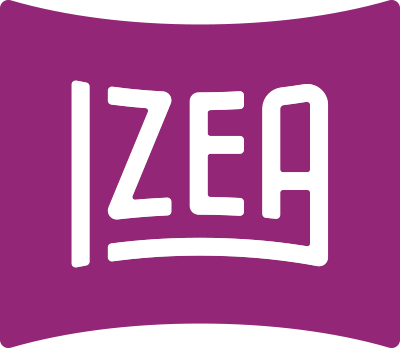There’s no doubt that influencer marketing is hot, and marketers are dedicating more money and resources to influencer partnerships. In fact, nearly two-thirds of marketers plan to spend more on influencer marketing in 2019.
And it’s no wonder why. A Tomoson poll found that businesses make $6.50 for every $1 spent on influencer marketing. And a whopping 89 percent of marketers in a Mediakix survey stated that influencer marketing ROI is comparable to or better than other marketing efforts.
You’re on board with the idea of influencer marketing, and you’re ready to test the waters. Now, the decision is outsource vs. in house. There are significant benefits and drawbacks to both options — and no one-size-fits-all answer.
In general, though, outsourcing is the way to go if you’re new to influencer marketing. It’s also appropriate if you aren’t ready for a significant investment of money or personnel and can’t execute the desired plan with your existing employees and resources. On the other hand, if you’re ready to plunge in headfirst, then creating an in-house solution may be the way to go. You can also entertain the possibility of taking a hybrid approach.
Benefits of Outsourcing Influencer Marketing
You’ll soon discover that you have your pick of influencer marketing agencies and turnkey providers that allow you to hit the ground running. Full-service influencer marketing management companies specialize in vetting influencers, pairing them to the right brands, managing the relationships and analyzing performance while you sit back. Here are some reasons why marketers use turnkey or agency solutions.
- Quick and Efficient Implementation. You’ve got access to an established team of experts with the skill set you need to get started. You don’t have to hire new employees or research and buy technology or software. Your marketing team remains free to work on other things.
- Lower Upfront Cost and Easiness in Scaling. You pay for billed hours or an upfront fee for a certain scope of work. Putting together a team from scratch is much costlier. These companies offer a lot of manpower. So, if you decide that you want to ramp up your influencer marketing, it’s just a matter of negotiating with your rep or project manager.
- Vetted Influencer Pool. These companies typically have rosters of influencers who have delivered results in past campaigns. They’re also likely to match you with the right influencers in a faster, more accurate manner than you could by searching an influencer database alone.
- A Wide Scope of Knowledge. An agency is going to stay on top of the latest influencer marketing trends and know all the current case studies and statistics. They also work with a wide range of companies. They’ve seen what worked — and didn’t work — for their other clients and can apply the lessons to your campaigns.
- Great Metrics and Analytics. Outsourced companies have to prove to their clients that their services are worth the money. That’s why they’re very good at analyzing the results of campaigns. They’ll have all the metrics and data you desire.
Drawbacks of Outsourcing Influencer Marketing
Although many companies find that outsourcing is the right solution, there are certain cons to consider:
- They Don’t Know Your Company Like You Do. You’ll need to educate your agency about your brand identity and influencer marketing goals. This could mean that you run up against a bottleneck while the outsourced company learns about your brand.
- It Can Be Tough to Find the Right Fit. Especially if you’re a small business, you may find that there’s a wide gap between what you want and what you can afford. Some agencies require a minimum that’s too steep for some startups.
- You Might Run up Against Limits. When you sign on with a company, you may be limited to certain platforms, certain influencers and certain creative directives.
- There Are No Direct Influencer Relationships. The company you hire is the middleman between you and the influencer. This way, it’s not uncommon for your influencers to never come in direct contact with you, the company they’re promoting.
Benefits of In-House Influencer Marketing
Nineteen percent of companies in a 2018 Linqia report said that they manage their influencer marketing in house. Nike, HelloFresh, Birchbox and Mars have all made the leap and formed in-house teams. But should you? Here are some of the pros:
- You Know Your Brand Best. You can ensure that influencer partnerships stay true to your brand voice and values. This could get watered down when you convey it to the outsourced marketing company and the company conveys it to the influencer.
- You Have Total Control. When you’re in charge, you won’t encounter creative restraints. You don’t have to worry that your agency is implementing cookie-cutter campaigns.
- There’s Close Oversight. You might want dedicated staff members who can jump on a new campaign or tweak a current one with minimal lag time.
- You Can Build Direct Influencer Relationships. Your team can cultivate long-term relationships with influencers — with no barriers. You have direct access to influencers, and they feel more connected to your company because they’re dealing with you and not a third party.
- There’s a Possibility to Recoup Costs Over Time. Are you planning to devote a lot of resources to influencer marketing for the long haul? It may make financial sense to set up your own team after you’ve priced what other companies will charge for what you want.
Drawbacks of In-House Influencer Marketing
The primary drawback of bringing influencer marketing under your own roof is that it’s expensive. There are some other significant issues that may give you pause.
- High Upfront Investment of Money and Time. It costs a U.S. company about $4,000 and takes around 24 days to onboard a new employee, according to Glassdoor. Then you’ll need to consider salaries along with the costs of influencer marketing management tools and software.
- Steep Learning Curve. If you’re asking your current employees to tackle influencer marketing for the first time, you’re asking them a lot. They’ll need to find the right influencers, negotiate terms and payments, onboard influencers and assign them work, and manage the ongoing relationships. They’ll also be responsible for analyzing the results of the influencers’ performance. It’s going to take time to get them up and running.
- Not as Efficient. A new team (or your current marketing team) won’t be as experienced as the people who work at full-service agencies. Your processes won’t be as streamlined, at least at first.
- Difficult to Scale. When you’re ready to take things up a notch, you’ve got to make another large investment of time and money to expand your in-house team.
Take a Hybrid Approach
Say you want to maintain a measure of control over your influencer marketing efforts but you don’t have what you need to do the nitty-gritty work. Consider hiring a senior-level manager. Allow that person to outsource the influencer marketing campaigns or use a platform to manage them.
One employee or a small team can join an influencer marketing platform or marketplace. You then gain access to a network of influencers and to tools to manage the effort. With an experienced person at the helm, this could be a nice compromise.
Whether you decide to outsource influencer marketing or keep it in house, you’re tapping into one of the most powerful advertising avenues out there.




